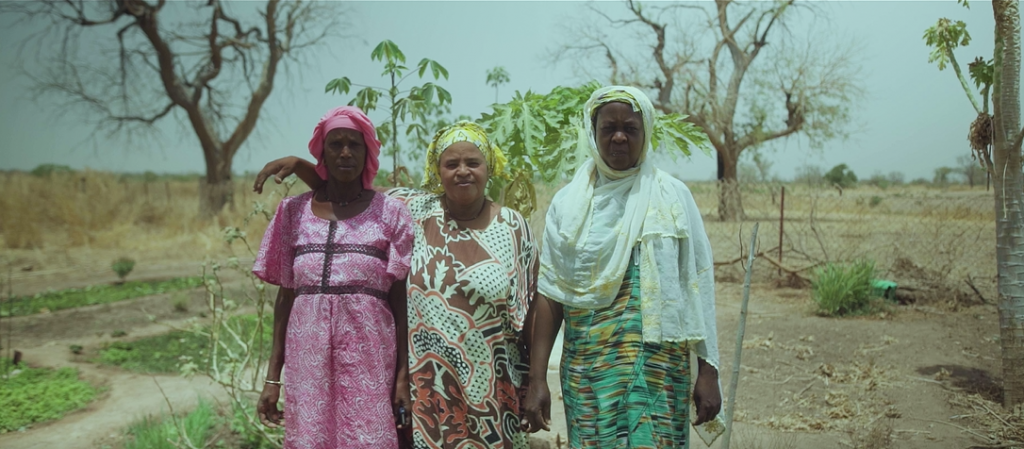A new briefing from international development organization ActionAid shows that women smallholder farmers in Africa and Asia are using new business strategies to navigate the Covid-19 food crisis and are planning for increasing risks in the next planting season.
To maintain an income despite food market closures, women smallholder farmers engaged in barter trade, sold directly to neighbors at a discount, or provided door-to-door produce delivery.
ActionAid’s findings come as the United Nations is today due to release new figures showing the extent of global hunger and malnutrition. Last year’s State of Food Security and Nutrition in the World (SOFI) report showed food insecurity is rising, with 690 million people going hungry due to climate change, conflict and Covid-19.
Alberta Guerra, ActionAid USA Senior Policy Analyst and expert in global food policies, says:
“The Covid-19 crisis is deepening existing inequalities and wreaking havoc on the lives of the most vulnerable people, especially small-scale food producers and women in the Global South.
“In the midst of all the challenges they are facing, enterprising women smallholder farmers across Africa and Asia are still farming, fishing, and raising livestock, and launching new businesses ideas to cope with Covid-19.
“But amid a rising global hunger crisis, urgent international financial support is needed to ensure women farmers have the resources, capital, and capacity they need to feed themselves, their families, and the rest of the world.”
ActionAid is calling on governments and international donors to invest in the Global Agriculture and Food Security Program (GAFSP), an innovative, multilateral fund set up to support smallholder farmers, which is currently facing a $1.2billion funding gap. Its new policy briefing, Advancing the rights of women smallholder farmers – lessons from Covid-19, finds replenishment of the GAFSP is key to supporting family farmers and their innovative coping strategies.
For many farmers who spoke with ActionAid, group solidarity was key to adjusting to market disruptions. Farmers pooled resources through cooperatives, community organizations, and churches, or worked on each other’s farms to reduce operating costs.
Key findings from an ActionAid survey of 190 people* show the cascading impacts of Covid-19 on their lives:
- Market closures and movement restrictions made it difficult for smallholder farmers to sell their crops. Between 73 and 83% of farmers lost income and livelihoods.
- Reduced incomes from market closures and job loss made it nearly impossible for smallholder farmers to invest in farming activities. With reduced incomes, over 93% of farmers interviewed used their savings to cover essential household needs during the pandemic. Ninety-four percent of interviewees said they will need financial support to continue farming.
- Farmers resorted to drastic measures to ensure food access for their families. Over 70% of farmers consumed surplus food which they would have sold under different circumstances. Over 58% of smallholder women farmers in the study confirmed that parents, especially mothers, skipped meals to prioritize their children’s nutrition.
- Women have taken on more unpaid care and domestic work. Over 60% of respondents said that women’s share of household chores increased since lockdown restrictions were put in place. Job losses and school closures from the pandemic increased the burden on women to provide food and childcare for their families, oftentimes including extended family.
Already, the next growing season is at risk. Many farmers do not see an opportunity to recoup and grow their businesses, due to low yields from the previous season, few reliable sources of finance, and limited availability of technical assistance.
Without swift government action, ActionAid warns, the crisis will leave severe impacts on women smallholder farmers for years to come.
Smallholder farmers need international financial support now
Instead of reinventing the wheel, governments can help prevent another food crisis by investing in an innovative, multilateral fund called the Global Agriculture and Food Security Program (GAFSP). Since its founding in response to the 2007-2008 food price crisis, GAFSP has supported more than 16 million smallholder farmers and their families with just $1.7 billion.
Already, GAFSP has provided an additional $60 million for farmers and producers to respond to Covid-19 impacts. The Program is now accepting proposals from producers’ organizations to launch projects aimed at supporting medium- to long-term Covid-19 recovery.
These new projects will also focus on strengthening agricultural sectors and food systems across the Global South to adapt to climate change.
GAFSP launched a new replenishment period with the goal of raising $1.5 billion between 2020 and 2025 to respond to emerging challenges in agriculture development in the face of the Covid-19 crisis and climate change. Germany, Spain, Australia, Norway, and the Gates Foundation committed nearly $300 million towards GAFSP’s replenishment.
ActionAid urges other government leaders to rise to the occasion. Constituents in the United States can send a letter to Congress.
Ends.
Available for comment:
- Alberta Guerra, Senior Policy Analyst, ActionAid USA
- Catherine Gatundu, Head of Resilient Livelihoods and Climate Justice, ActionAid International
For interviews and information, contact Molly Boyle at molly.boyle@fpmgi.com or +1 202-777-3668
Notes to editors:
*In September 2020, ActionAid conducted qualitative research in 14 selected countries in Asia and Africa: Bangladesh, the Democratic Republic of Congo, Ethiopia, Gambia, Ghana, Kenya, Malawi, Nepal, Rwanda, Senegal, Tanzania, Uganda, Zambia, and Zimbabwe.
In June 2020, Alberta Guerra provided commentary on this topic: Opinion: Building on past success to prevent a COVID-19-related food crisis
Hear from Senegalese farmers in their own words: Click here

